Why does hatred for the child arise and what to do about it?
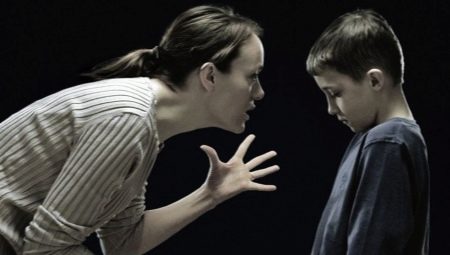
Any parent at a certain stage in life can feel tired of their own child, experience anger, anger and intense irritation. However, not every person in these moments feels hatred for his child. It cannot be denied and even more so forcibly suppressed all negative feelings. You need to admit to yourself in the arising dislike for the child.
How is it expressed?
Hate is a destructive emotion. It deprives a person of calmness and inner harmony, prevents the reign of balance in the soul and contributes to the disruption of relationships with others. An overwhelming feeling of dislike for a child is rejection, rejection, denial of his existence, disgust and hostility. Often times, people who hate their own children carefully hide their negative feelings from outsiders. Some are afraid to admit even to themselves. Not every person is ready to voice this problem.
Dislike for the baby creates obstacles to the formation of a full-fledged personality. It can manifest itself in inattention to the child's problems, rudeness, despotism, sarcasm, ridicule and in various actions that humiliate the dignity of the little man. A mother or father, in a fit of anger, can scream at their own child, offend him and even beat him.
The world knows cases that are stunning in their cruelty. For example, angry parents deprive their own child of food and freedom by chaining him.

Main reasons
Hatred does not come out of the blue. It is formed as a result of the body's reaction to the violation of the internal boundaries of personal comfort. Sometimes the lack of support from your significant other or your own parents leads to anger. Left alone with her problems, the woman plunges into gloomy reflections. Ultimately, negative emotions are directed towards the child.
Sometimes a baby is born unplanned. The parents had completely different plans, and the baby bursts into their lives, destroying hopes. Some are not ready to change their lives, so they blame the child for the collapse of an unrealized dream. They cannot come to terms with the birth of a baby and, on an unconscious level, begin to feel hostility towards their own child.
The reason for the manifestation of dislike for the baby may be the exaggerated demands of the young mother to her own person. The lady is visited by thoughts about the inconsistency with the image of the ideal parent. Internal conflict leads to rejection of the baby. Postpartum depression plays an important role. It can be associated with fatigue from marital and household responsibilities, with a sudden appearance of fullness, or with the loss of your workplace due to pregnancy.
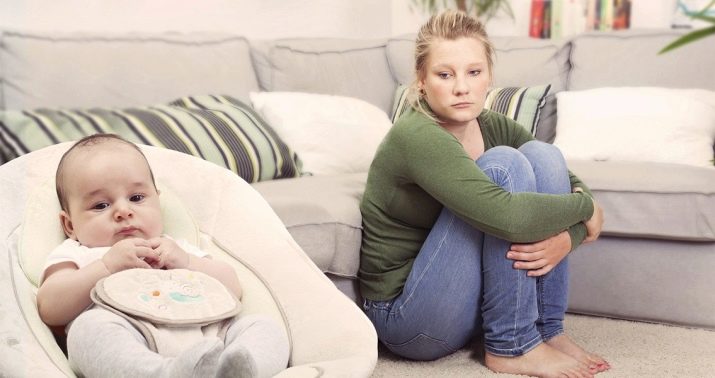
Many men do not cope with the chores and worries that unexpectedly fell on them. And the baby cries a lot, so the young father is deprived of the opportunity to sleep well. And if, in addition to other problems, a sick baby was born, then the spouse may leave the family altogether. The sick child annoys the father. As a result, hatred awakens.
Breaking up with a loved one can turn a loving mother into an irritable woman. The kid turns into a kind of lightning rod. A woman does not have enough mental strength to show affection and warmth. She takes out the accumulated resentment and anger on a crumb. The native child infuriates the parent. Shouts, reproaches and undeserved accusations are increasing. Subsequently, maternal irritation is replaced by hatred.
When a marriage is divorced, the baby's resemblance to the former soul mate often causes rejection. To the parent, the child resembles a person who has caused mental pain. All the accumulated negative is transferred to the son or daughter.
An unconscious projection is created from the ex-spouse or spouse onto an innocent baby.
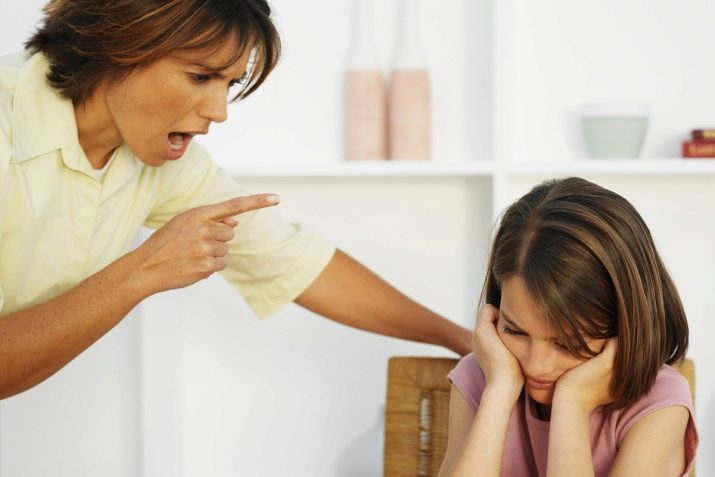
A father may dislike his daughter because of the similarity of some traits to her mother, to whom the man is now hostile. A single woman also recognizes the negative qualities of her ex-husband in the baby. The resemblance to a hated man forces a woman to throw out all her negative emotions on a crumb.
Sometimes the child does not live up to the idealized expectations of the parents. A baby of an unwanted gender may be born. Someone gets embittered by recognizing their own traits in the appearance or character of the baby. In addition, a baby can be born from an unloved person.
Some parents, after the birth of their second baby, begin to hate the older child. Compared to a newly born baby, the first-born begins to seem like a big and independent person. Parents are annoyed that he also needs care and attention.
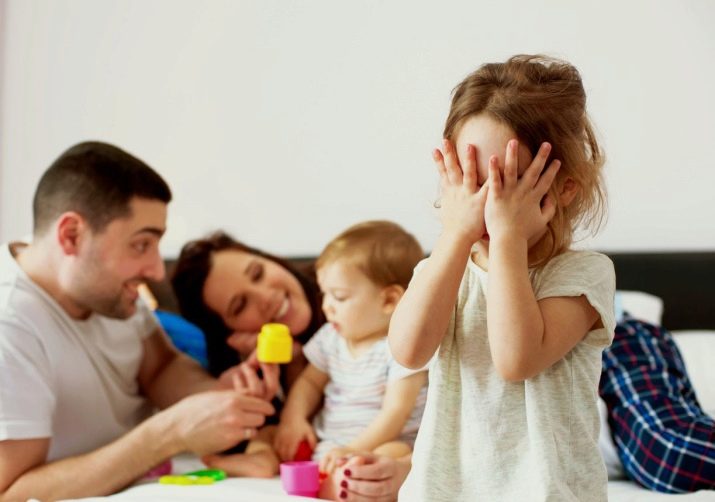
The father of the son sometimes begins to see in his own child a competitor for the role of the first man of his wife. He notices that the attention of the chosen one is now directed to the baby. The spouse is angry with his significant other. It seems to him that his wife loves more than her son. Resentment and jealousy lead some to separation from family life, spree and accusations of the wife. The enmity of the father gradually degenerates into hatred of his offspring. The parent humiliates his son, criticizes him for any actions, beats him because of trifles.
The hatred of a father for his daughter looks a little different. The man wanted the birth of a boy. The future father mentally imagined his actions aimed at raising his son. Expectations were not met. As a result, the man humiliates the girl, reproaches, condemns, shames, criticizes and resorts to physical violence.
It is not uncommon for a father's friendliness to degenerate into hostility towards his teenage daughter. A parent notices the transformation of their own child. The daughter blossoms, becomes a sexually attractive girl. Some fathers get scared of potential arousal and withdraw from their daughter. Others begin to engage in assault. Not every man is capable of realizing and accepting his sexual impulses towards his teenage daughter without any attempts at seduction.
A parent should tell his daughter that she is beautiful. He is obliged to wish her a meeting with a wonderful young man. Father's wise parting words help support, not traumatize, the grown girl.
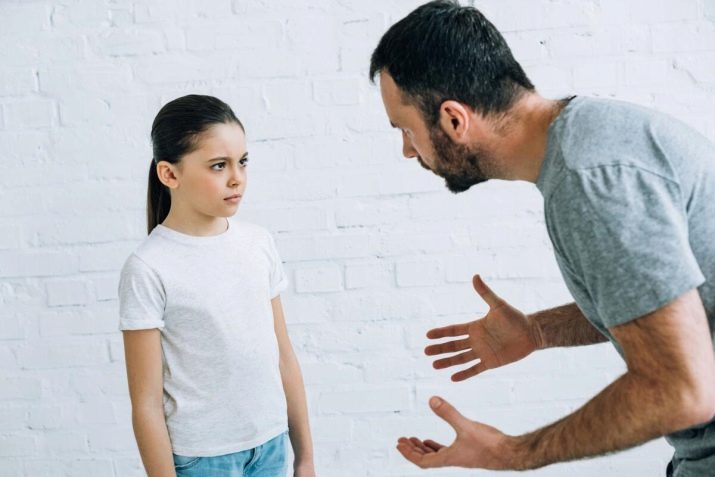
It happens that the child did not live up to the expectations of the father. As a child, the girl felt the love and care of her dad. The man begins to hate his already grown daughter. He considers her an irresponsible person, raising her children the wrong way. Unlimited love for grandchildren awakens in a man dislike for his own child. Or, in the imagination of the father, the daughter seemed to be an honored doctor or a well-known lawyer, and she works as an assistant teacher in a children's institution. Frustration leads to bitterness and hostility.
The reason for the hatred of the child of the chosen one or the chosen one from the first marriage is most often jealousy. A person may be jealous of his soul mate for a former companion or companion. It seems to some that a spouse or spouse is more reverent to the child from a previous relationship than to their joint baby.

What to do if you hate a child?
Destructive feelings poison life. They can push a person to commit reckless and meaningless acts. Try to reflect on your painful experiences. Don't be afraid to talk openly about your negative emotions. Share your thoughts with your significant other, with your friends, your own parents, brothers, sisters.
Explicit admissions to oneself in rejection of one's own or an adopted child neutralize a potentially destructive affect. Saying problems out loud helps you deal with negativity. Denial and locking up lead to outbursts of rage, anger, and irritability. The task of adults is to provide children with a sense of security.
Learn to forgive your child for any wrongdoing. Forgiveness leads to the reign of peace and tranquility. Go in for sports, household chores with your child, take walks in the fresh air. Go with the whole family to the cinema, to concerts, to the puppet theater. Joint rest relieves irritability.
Overestimated expectations of a father in relation to an adult daughter often conflict with reality. The parent should come to terms with and accept individual desires and needs that may go against the family's expectations. Above all, be tactful and tolerant.

It is important for the father to introduce the maturing son into the world of male relationships. Introducing a teenager to repairing equipment, attending football or hockey matches, fishing, hunting, various types of modeling and construction, driving a car brings relatives together. Common affairs and hobbies reduce the level of the father's hostility towards the growing child. By introducing his son to the values of the male subculture, the parent strengthens interpersonal ties. A joint pastime is conducive to communication and networking. A sense of community and ownership of each other's success builds trust and mutual understanding.
Children are very sensitive to the parent's dislike for themselves. Even carefully concealed irritation can lead a baby to depression and the development of all kinds of complexes. It is very important to devote time and attention to the firstborn, to teach him to take care of younger brothers and sisters. The firstborn should feel the charm of his position. It is he who is the first owner of new toys, books, bicycles, clothes.Ask him for help, but do not shift all the responsibilities of raising the crumbs onto the little man. In a younger child, develop respect for an older sister or brother.
You can stop hating your own child only by working hard on yourself. You need to aim at showing love and mercy to your child. You also need to demonstrate friendliness towards others, so that the baby learns to understand other people. Concentrate not on your negative emotions, but on the needs of the child. The hatred will gradually begin to dissolve.
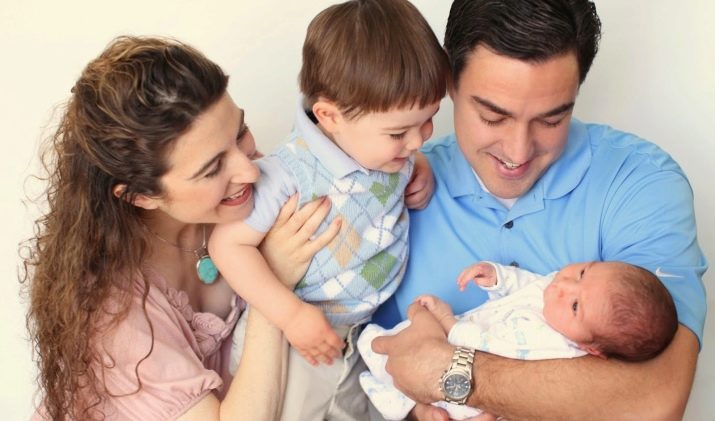
Each specific case of manifestation of hostile attitude towards the little man requires a special approach.
- Rejection of a newborn baby. After giving birth, some women go into postpartum psychosis. It is caused by a hormonal disruption in the body of a young person. Embittered ladies during this period can fiercely hate their baby. Close relatives should help the young mother by taking on some of her responsibilities, including caring for the baby. Severe mental disorder requires the intervention of a psychotherapist. The specialist will help to identify the cause of the condition of the young mother and outline ways to get rid of the disease.
- Hatred of the child from the first marriage of a spouse. A person can fall in love with someone else's child, but this requires a lot of effort. To accept a stepdaughter or stepson into your home without negativity helps to work hard on relationships and control your own emotions. Share the care of the child with your significant other, participate in the upbringing, consult in difficult cases, share your personal opinion. Show attention to your baby. However, you should not curry favor with the child, coax him in every possible way. Behave naturally. Let events unfold as they should. Children from the first marriage of a spouse or spouse must see that they are loved no less than a half-brother or half-sister.
- Hate for all young children. There are people who have hostile feelings towards all young children. They hate screaming babies, capricious babies, restless grown up children. Such individuals should look for a reason for joy in any given situation. React positively to the over-activity of children, because it indicates their excellent health. In addition, noisy and cheerful kids distract others from sorrowful thoughts. Try to be kind and warm towards them. Be understanding of the needs and requirements of young children. Think back to yourself at their age. Great relationships with children will bring you joy and happiness.

Psychologist's advice
There are no wrong emotions. Rage, anger, anger, irritation signal a threat to the safety and well-being of a person. Hatred of a child does not always indicate that a woman has not taken place as a good mother. Most often, this means that she needs the help and support of loved ones.
Parents need to be patient. Learn to control your emotions. Free yourself from negative reactions to certain antics of the baby. Don't be ashamed to apologize to him for the outburst of anger. Press the baby to you more often, stroke it, hug it. Even such formal actions give warmth to the child and to you. Over time, your soul will begin to thaw.
Try not to raise your tone when expressing your dissatisfaction with the child. Focus on his inappropriate behavior, not the personality of the little man. There is no need to threaten, intimidate. Have a constructive conversation. The kid, accustomed to constant parental screams, does not perceive calm speech.
Never reproach a child for being born. Don't tell him that without his existence, your life would be much better. Such words seriously hurt a fragile soul.

The little man does not need to know what his parents had to sacrifice for him. And this fact should not become a cause of hatred.








